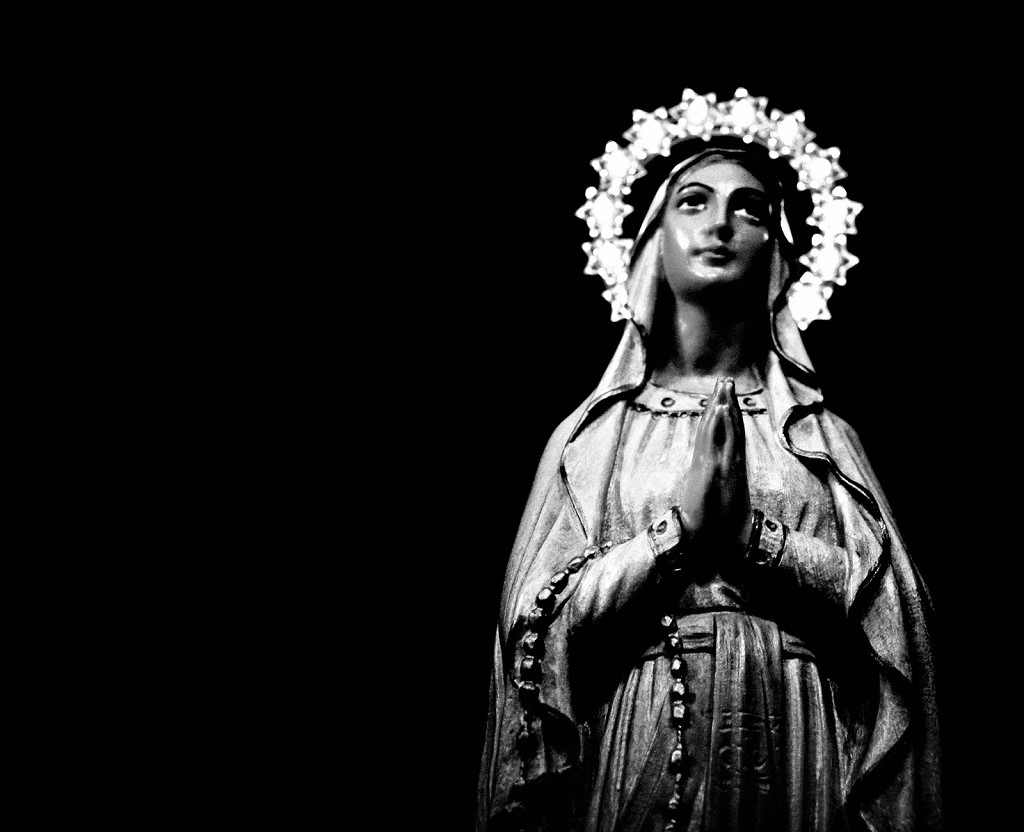On September 8, the Church celebrates the Nativity of Mary. Essentially, it’s a birthday party!
We know that this liturgical recognition of Mary’s birth dates back to about the 6th century (and dates 9 months from the feast of the Immaculate Conception, on December 8.) We don’t really know much about the birth of Mary, but what we do know come from a book known as the Protoevangelium of James. It is not part of the New Testament, but scholars believe that is has solid evidence of early Church traditions and includes substantial historical information. Because it is not part of the Bible, it is not considered infallible, however.
With that being said, this book contains some information about Mary’s parents, St. Joachim and St. Ann:
The “Protoevangelium of James,” which was probably put into its final written form in the early second century, describes Mary’s father Joachim as a wealthy member of one of the Twelve Tribes of Israel. Joachim was deeply grieved, along with his wife Anne, by their childlessness. “He called to mind Abraham,” the early Christian writing says, “that in the last day God gave him a son Isaac.”
Joachim and Anne began to devote themselves extensively and rigorously to prayer and fasting, initially wondering whether their inability to conceive a child might signify God’s displeasure with them.
As it turned out, however, the couple were to be blessed even more abundantly than Abraham and Sarah, as an angel revealed to Anne when he appeared to her and prophesied that all generations would honor their future child: “The Lord has heard your prayer, and you shall conceive, and shall bring forth, and your seed shall be spoken of in all the world.”
St. Augustine claimed Mary’s birth as:
… an event of cosmic and historic significance, and an appropriate prelude to the birth of Jesus Christ. “She is the flower of the field from whom bloomed the precious lily of the valley,” he said.
Jesus likely grew up calling his foster father, St. Joseph “Abba” and his mother “Immah.” Both are Aramic for the more endearing terms of “daddy” and “mommy.” By God’s extraordinary grace, all baptized Christians are the adopted sons and daughters of God, brother and sister to Jesus, and kept under the protection of Mary, our Blessed Mother. While it’s not likely that the Holy Family had birthday cake with streamers and balloons, we can still celebrate with what Mary would like best: our prayers.
Hail, Infant Mary, full of grace, the Lord is with thee, blessed art thou forever, and blessed are thy holy parents Joachim and Anne, of whom thou wast miraculously born. Mother of God, intercede for us.
We fly to thy patronage, holy and amiable Child Mary, despise not our prayers in our necessities, but deliver us from all dangers, glorious and blessed Virgin.
V. Pray for us, holy Child Mary.
R. That we may be made worthy of the promises of Christ.
Let us Pray: O almighty and merciful God, Who through the cooperation of the Holy Ghost, didst prepare the body and soul of the Immaculate Infant Mary that she might be the worthy Mother of Thy Son, and didst preserve her from all stain, grant that we who venerate with all our hearts her most holy childhood, may be freed, through her merits and intercession, from all uncleanness of mind and body, and be able to imitate her perfect humility, obedience and charity. Through Christ Our Lord. Amen.

